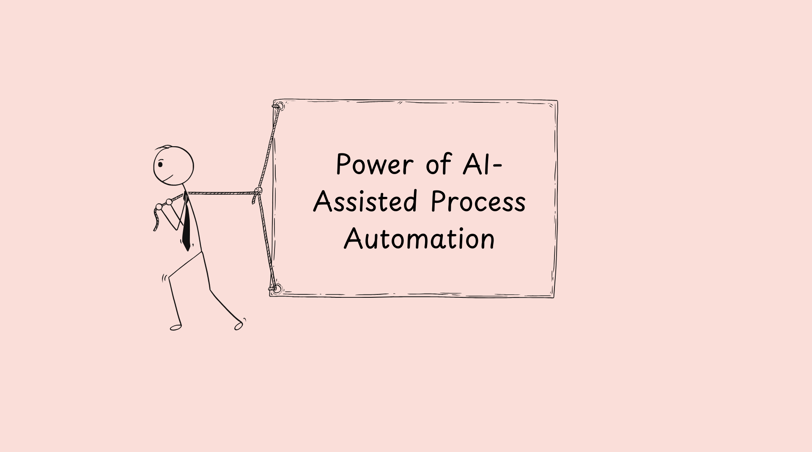Power of AI-Assisted Process Automation
The Evolution: From RPA to Intelligent Automation and Beyond
AIBUSINESSBUSINESS PROCESS AUTOMATIONAUTOMATIONAIFORSMALLBUSINESS
4/6/20251 min read


In today's fast-paced business landscape, efficiency and agility are paramount. Organizations are constantly seeking ways to optimize their operations, reduce costs, and enhance customer experiences. While Business Process Automation (BPA) has long been a cornerstone of these efforts, a new era has dawned with the integration of Artificial Intelligence (AI). Welcome to the age of AI-assisted process automation, a transformative force that is reshaping how work gets done.
Evolution of Process Automation
First Generation: Robotic Process Automation (RPA) - Software bots automating rule-based tasks (20-30% of organizational tasks)
Second Generation: Intelligent Automation - Combining machine learning with process automation (30-40% of tasks)
Third Generation: AI-powered automation - Integrating Large Language Models and generative AI (potential to automate 40-80% of tasks)
How AI Enhances Business Process Automation
Creates dynamic solutions that adapt beyond fixed rules
Enables continuous improvement through learning from data
Expands automation to complex, multifaceted tasks
Provides intelligent decision-making through data analysis
Handles unstructured data like emails and documents
Key Technologies
Natural Language Processing (NLP) and Machine Learning (ML)
Computer Vision
AI-enhanced Robotic Process Automation
Industry Applications
Customer Service: AI chatbots, sentiment analysis
Sales & Marketing: Automated price quoting, lead scoring
Finance: Invoice processing, anomaly detection
HR: Resume screening, employee onboarding
Supply Chain: Demand forecasting, inventory optimization
IT & Cybersecurity: Threat detection, automated responses
Legal: Contract review, document automation
R&D: Idea generation, project management
Implementation Considerations
Define clear objectives
Assess current processes
Ensure quality data preparation
Select appropriate AI technologies
Integrate smoothly with existing systems
Monitor performance and continuously improve
Challenges & Risks
Data security and privacy concerns
Workforce adaptation and training needs
Ethical considerations and potential algorithm bias
Integration challenges with existing systems
Cost and resource requirements
Cultural resistance to change
Future Trends
More sophisticated AI algorithms
Integration of AI and IoT
Enhanced AI-RPA synergy
Advanced predictive analytics
Democratization of AI tools
Hyperautomation across departments
If you are a small business and need help with how you can integrate AI into your existing workflows, then check out our website or get in touch with us.
------------------------------------------------------------------------------------------------------------------------------------------------------------
References
1.https://www.leewayhertz.com/ai-in-business-process-automation/
2.https://firmbee.com/ai-assisted-process-automation
3.https://www.forbes.com/councils/forbestechcouncil/2024/07/01/the-evolution-of-process-automation-in-the-ai-era/
